Brighton studio The Chinese Room has had an interesting few years. The studio renowned for titles like Dear Esther and Everybody’s Gone to the Rapture laid off a big chunk of its staff in 2017 before being bought by Sumo Digital in 2018.
Following the acquisition, the studio announced it was working on games that simply didn’t seem to fit its usual wheelhouse, including Vampire: The Masquerade – Bloodlines 2 and adventure-platformer Little Orpheus. There was a sigh of relief, then, when the narrative horror Still Wakes the Deep was announced in 2023. Finally, the studio was going back to its narrative-led roots, and fans like me rejoiced.
But while Still Wakes the Deep may look like a return to form for The Chinese Room, its beauty is only skin deep.
The sea is a hungry dog

Set in 1975, Still Wakes the Deep follows protagonist Caz McLeary, who (against his wife’s wishes) signed up for a several-month stint as an electrician on an oil rig off the coast of Scotland. Given it’s Christmas, I’d be pretty pissed too.
This survival horror opens innocently enough, with Caz chatting with the eclectic assortment of Beira D rig residents, including his longtime mate and holy man Roy, tough-as-nails Finlay, and pain-in-the-ass rig boss Rennick. Things take a turn, though, when the oil drill hits something otherworldly, causing the rig to start collapsing into the treacherous North Sea and an unknown horror to surface. You must find a way off the rig and save as many of your colleagues as you can before the supernatural force takes hold of them.
Trawler trouble
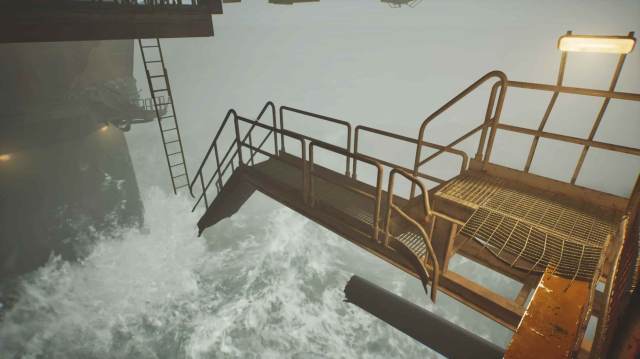
While Still Wakes the Deep isn’t described as a walking simulator, it feels like one at times—and I say that as someone who loves walking sims. The story is linear and its objectives usually task you with getting to a specific part of the rig while navigating hazards as it collapses. This mainly involves jumping across chasms and cautiously balancing beams that overlook the raging sea below, crawling through tight vents, and flipping switches or turning valves.
As the game ramps up and the rig gets more perilous, navigation becomes trickier, especially as the supernatural horror takes hold of the rig and its residents. Stealth is key as you try to avoid the grotesque, slimy creatures that now roam the ship, but sometimes you just need to run like hell and hope they don’t catch you.
While those stealth moments certainly had my heart pounding, there simply wasn’t enough depth to the gameplay to keep my attention. At six hours long, Still Wakes the Deep feels like it overstays its welcome, and after hour two, it started feeling like a repetitive slog to reach the end.
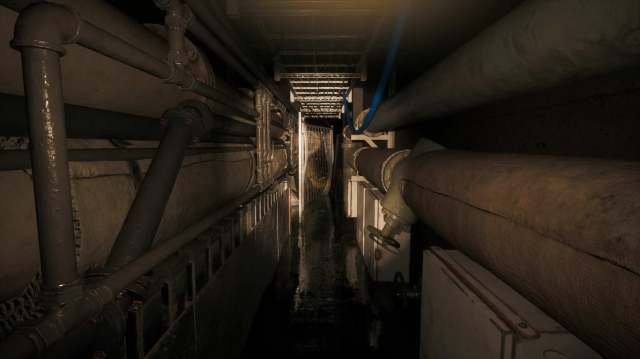
The gameplay feels like a blend of The Chinese Room’s previous works. It takes the authentic, detailed environments and minimalistic gameplay we saw in Everybody’s Gone to the Rapture and Dear Esther and tries to combine this with the adrenaline-pumping horror and more hands-on approach of Amnesia: A Machine for Pigs, but ends up falling between the cracks. The story isn’t gripping enough and simply doesn’t delve deep enough to keep you engaged for that six-hour runtime.
Ideally, the game should have been much shorter, but even then, I’d still lose interest just a few hours in. Rapture kept me gripped with its story for almost five hours. By comparison, Still Wakes the Deep lost me in the first two. It would’ve benefited from having more pieces of lore scattered around and more time to get to know the characters and their backstories.
On top of this, the action elements aren’t enough to hold your attention. There are only so many valves you can turn, levers you can pull, and switches to flip before it grows tiresome. I can’t help but think Still Wakes the Deep should’ve leaned more into A Machine for Pigs’ gameplay with more puzzle elements or more challenging stealth sections.
Glè mhath

It’s a shame, because Still Wakes the Deep is beautiful. The attention to detail The Chinese Room puts into its worlds is on full display here. The oil rig feels like a lived-in space with its tartan carpets, working man’s club-style lounge, and 70s Christmas decorations. The character models are highly realistic, too, from the oil grease on their clothes to the sweat on their heads.
What really stood out to me, both in this review and my Gamescom preview, is the game’s Scottish authenticity. You can play the game in Scottish Gaelic, but if you choose to play in English, you have two options: English and English (United Kingdom).
English is recommended (if it’s your first language) as you can play Still Wakes the Deep as intended, with characters speaking what sounds like Doric (a native Scottish language) and using a plethora of Scottish slang. In English (United Kingdom), you get the literal translation of the script—in case you struggle to understand what the characters are saying.
As a Northern Irish person with Ulster Scot heritage, I welcomed the slang. Much of it is in our vernacular too, and I can’t remember ever hearing it in a game. What I welcomed more, though, was the liberal swearing. The characters say the C-word so many times it would make an American wince. I loved it. It’s what my real Scottish friends sound like, rather than the Groundskeeper Willy caricature we’re so familiar with.
Choppy waters
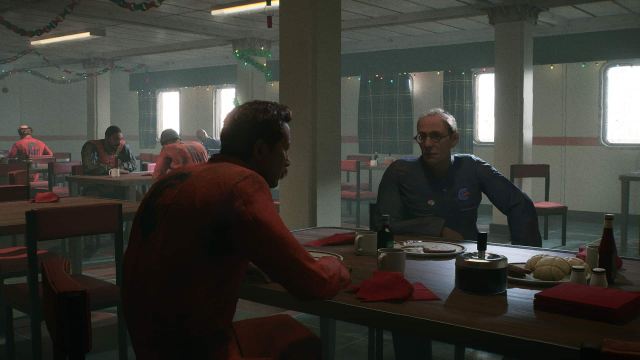
I really wanted to love Still Wakes the Deep. After my preview at Gamescom, it shot to the top of my wishlist. But unfortunately, the engrossing narratives The Chinese Room is renowned for aren’t on display here.
Still Wakes the Deep tries to dig beneath the surface of Caz and his crewmates, but doesn’t go far enough. Without a sufficiently riveting story, we’re left with a horror premise that feels like it’s been done before and more questions than answers at the end of the slog.
- Authentically Scottish
- Beautifully detailed environments and characters
- Gameplay is boring and repetitive
- Story lacks the depth to keep you engaged
- Six-hour runtime is a slog



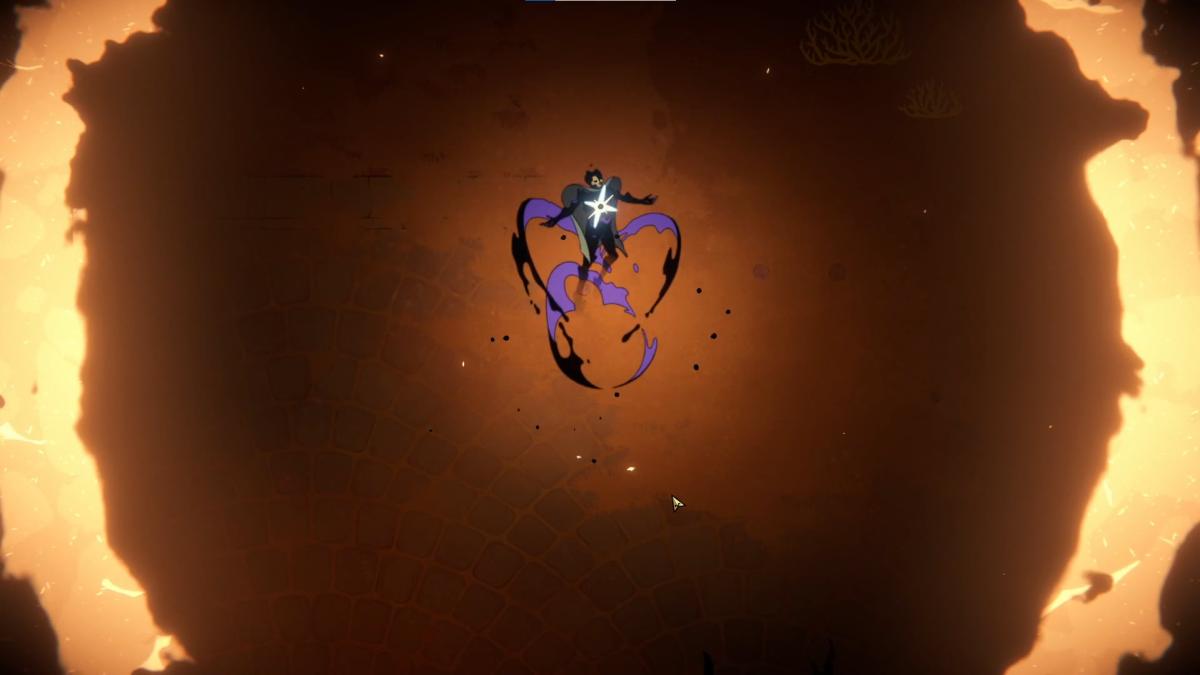


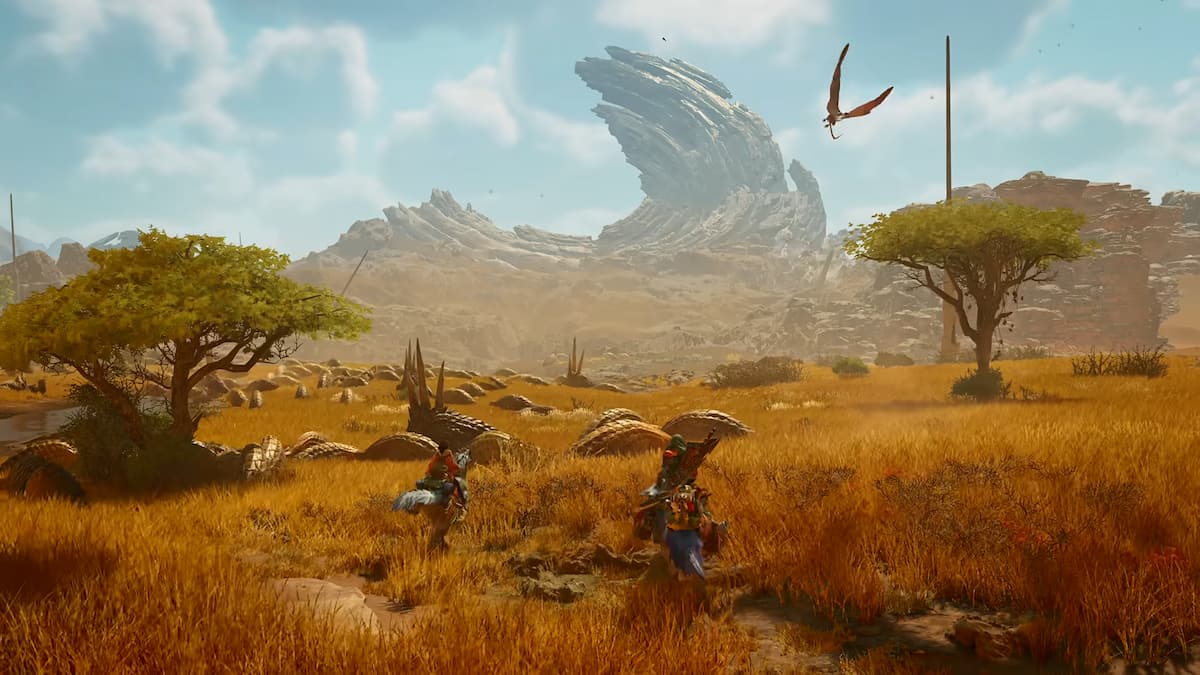
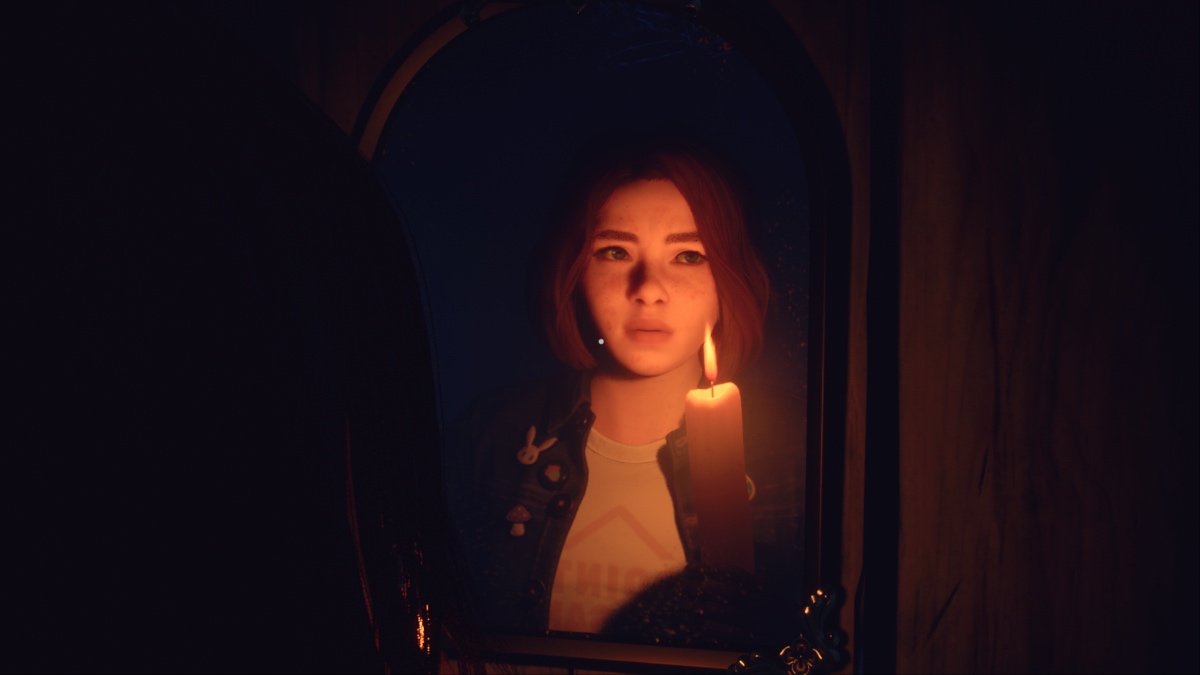
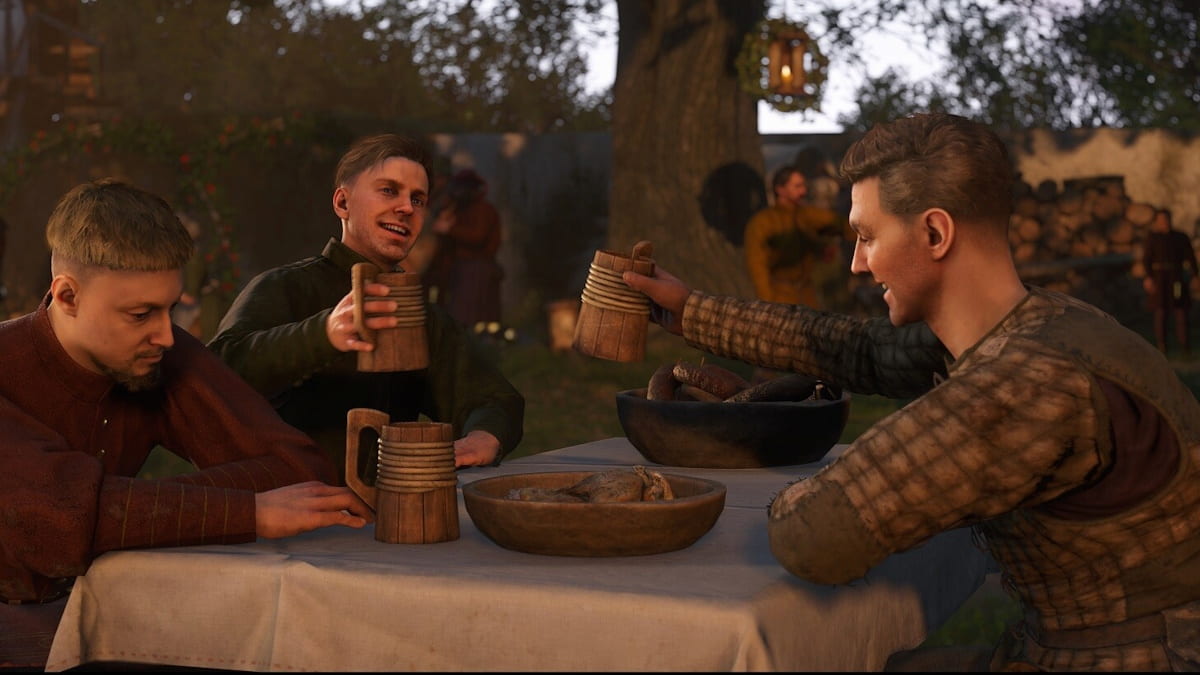
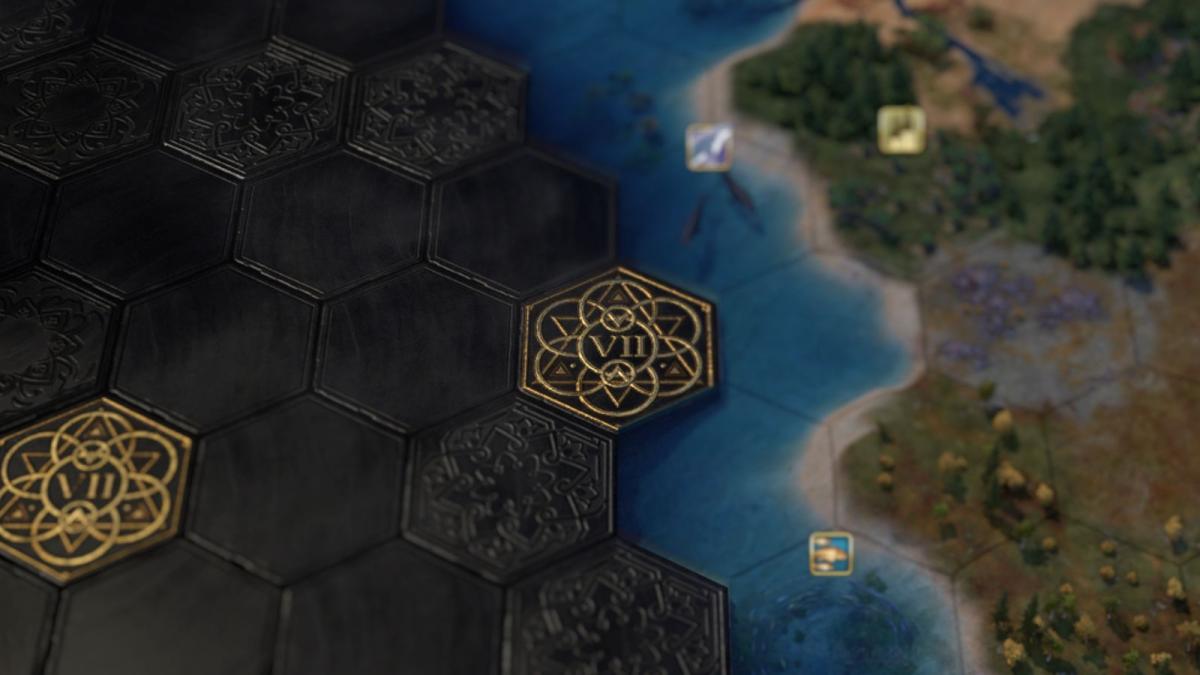



Published: Jun 17, 2024 08:00 am